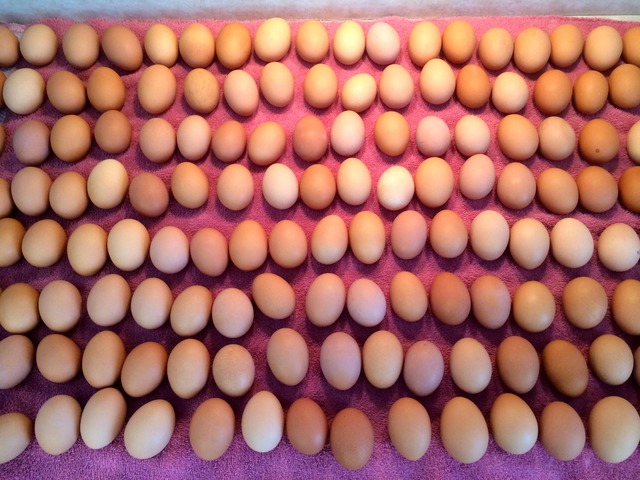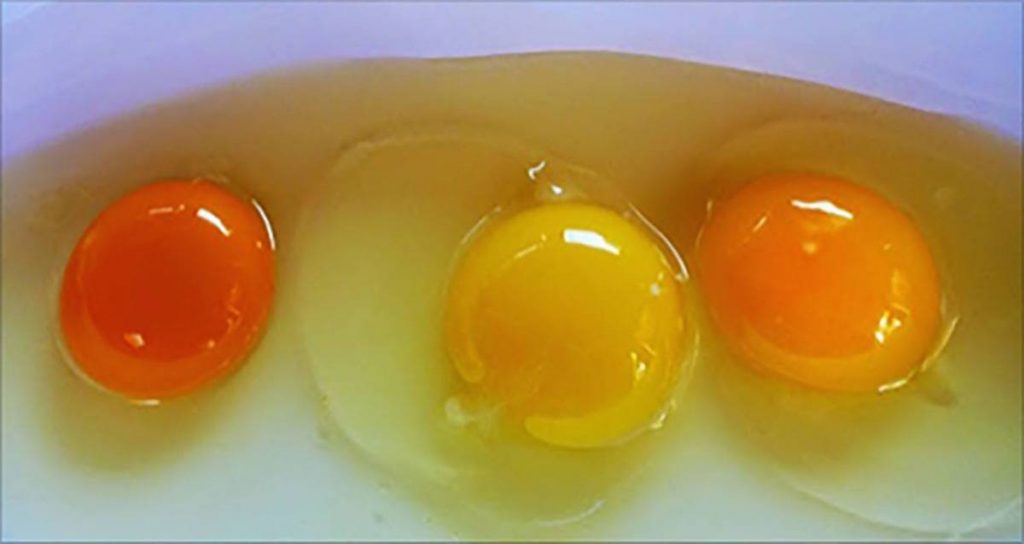Eggs are a staple in almost all of our diets. While their nutritional impact has sometimes gone back and forth, most of us consider eggs one of the healthiest things we can eat. They're loaded with protein, certain vitamins, and have good cholesterol, but are they all created equal?
Obviously there's a different between what species and egg comes from, or even breeds of hens, but I'm talking about chicken eggs. Many people believe that the yolk color determines the nutritional value of an egg. Are you one of them?

Scientists took a look at the rumor to see if you're right.
Professor Marion Nestle, who has written books on nutrition, has studied eggs of all kinds, and has come down with a scientific ruling on eggs with different colored yolks.
"The color of an egg yolk doesn't reflect nutritional value in any significant way," she said, but then noted that there may be some "small changes in micronutrients such as vitamin A."
It's long been thought that a darker yolk means a richer egg, filled with more nutrients and vitamins, but that's not actually the case. The real reason for a darker yolk is actually diet. When a hen eats too much food that's filled with yellowy carotenoids their yolk will have a deeper color. It's illegal for farmers to feed their hens food with yolk-dying chemicals, however some natural ingredients do have a similar effect.

While color doesn't mean anything, a hen's diet does impact how nutritious an egg is for you. Pasture-raised hens or ones fed with only all natural ingredients have more healthy Omega-3 fats, but less good cholesterol.
So there's your answer! Any egg is good for you, it just might be good for you in different ways.

